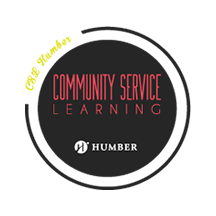 |
| my first service-learning adventure |
In my current role I am working on developing a campus-wide service-learning framework and I have two years to complete this task. As we head in to the winter break I thought I would take a moment and reflect on some of what happened during year one.
Blog
First I started a new blog. Putting my thoughts out into the world was not an easy first step - but I figured all the research and information I was gathering had to go somewhere, and honestly who reads manuals anymore? In fact research done by Dr. Tricia Seifert and her team found that one of the last places faculty look for information on services for students is in handbooks (I think it's safe to say this trend may apply to other sources of information).
Service-learning Task Force
Each time I say "task-force" in my head I apply some dramatic inflection - it just seems to deserve it. Seriously though, I had the pleasure of chairing a task force of highly engaged and highly motivated faculty and staff. Together we worked to develop a service-learning definition and values statements that reflect the mission and goals of our institution. We hope to use this as the foundation for our framework moving forward.
Live-scribe Videos
Again, looking for new and creative ways to engage faculty I developed two live-scribe videos to try and demystify service-learning, distinguish it from other forms of experiential learning and hopefully make it seem easy? The process of making the videos was fun and it gave me a chance to be visually creative. When it came time to record my voice I will admit there was a lengthy stand-off between me and the mic.
Here is a preview of the first video to be launched in 2016:
Ontario CSL Network
We hosted the opening network meeting for the 2015 / 2016 school year where the focus of the morning discussion was in International Service-Learning. We had a faculty member, Mary Lendway, share her expertise on planning and delivering a top-notch service experience for students overseas and we introduced our Global Citizenship Certificate.
In the afternoon we skyped with Dr. Alison Taylor and her team from the University of B.C. who are working on a Knowledge Synthesis Report; this report is looking at the history and current state of service-learning in Canada. I was lucky enough to be asked to be one of the final reviewers of the report before the report was submitted for final print.
 Student and Faculty Survey
Student and Faculty SurveyThe first question we asked ourselves was, do students even want more service-learning on campus? To find out we created and administered a student and faculty survey looking at attitudes towards service-learning. We learned that 85% of students would like to see more service-learning, 79% felt it was important, and 88% would likely enroll in a service-learning course. From the faculty we learned that about half of the faculty felt they had implemented service-learning and that the most common barriers included time and being unsure of how to get started.
Overall a very busy year. I look forward to year two! A very special thank-you to all who have read the blog - I hope you have a wonderful, safe and happy holiday!
Melissa

